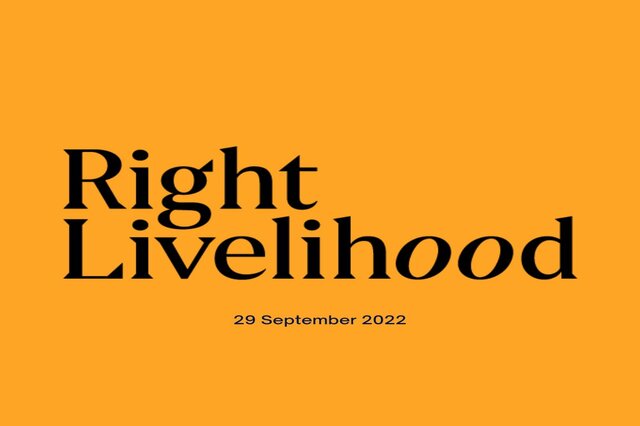Stockholm – Two Somali human rights activists and a Ukrainian human rights lawyer won Sweden’s Right Livelihood Award on Thursday, which it considers an alternative to the Nobel prize.
The Right Livelihood Foundation also honoured Venezuela’s Cecosesola, an organisation offering social services, and the African Institute for Energy Governance.
“In the face of failing governance and a breakdown of order – including wars, terrorism, extractivism, massive displacement and economic crisis – (this year’s laureates) have established new, human-centric systems”, the head of the foundation Ole von Uexkull said in a statement.
Somali activists Fartuun Adan and her daughter Ilwad Elman were honoured “for promoting peace, demilitarisation and human rights in Somalia in the face of terrorism and gender-based violence”.
The two women run initiatives that help disarm and rehabilitate former child soldiers as well as victims of gender-based violence.
Change-makers from all around the world have been recognized by the Right Livelihood Awards for the role they’re playing in trying to make the world a better place.
Find out who has been awarded what was dubbed the alternative Nobel Prize ?https://t.co/64g7cdn5r2
— DW Europe (@dw_europe) September 29, 2022
Ukrainian Oleksandra Matviichuk and her Center for Civil Liberties were honoured “for building sustainable democratic institutions in Ukraine and modelling a path to international accountability for war crimes”.
The organisation also documents human rights violations and war crimes committed since Moscow’s invasion of Ukraine.
Cecosesola received the award “for establishing an equitable and cooperative economic model as a robust alternative to profit-driven economies”.
Finally, the African Institute for Energy Governance won for its “courageous work for climate justice and community rights violated by extractivist energy projects in Uganda”.
ALSO READ | Somalia facing ‘very alarming’ situation, says UN
The Uganda-based organisation provides advocacy to help poor communities influence energy policies, including lobbying against oil and gas projects harmful to the environment.
Swedish-German philatelist Jakob von Uexkull founded the donor-funded Livelihood prize in 1980 after the Nobel Foundation behind the Nobel Prizes refused to create awards honouring efforts in the fields of the environment and international development.
They were introduced “to honour and support those offering practical and exemplary answers to the most urgent challenges facing us today,” according to the foundation.
The prize comes with a one-million-kronor ($88 000) cheque per laureate.
Follow African Insider on Facebook, Twitter and Instagram
Source: AFP
Picture: Twitter/@ZermattSummit
For more African news, visit Africaninsider.com


